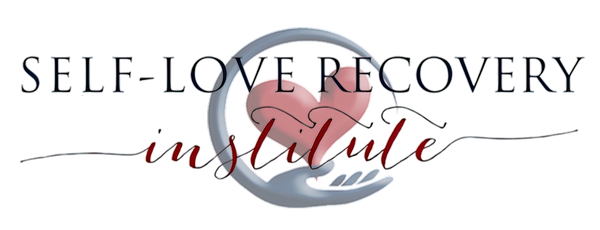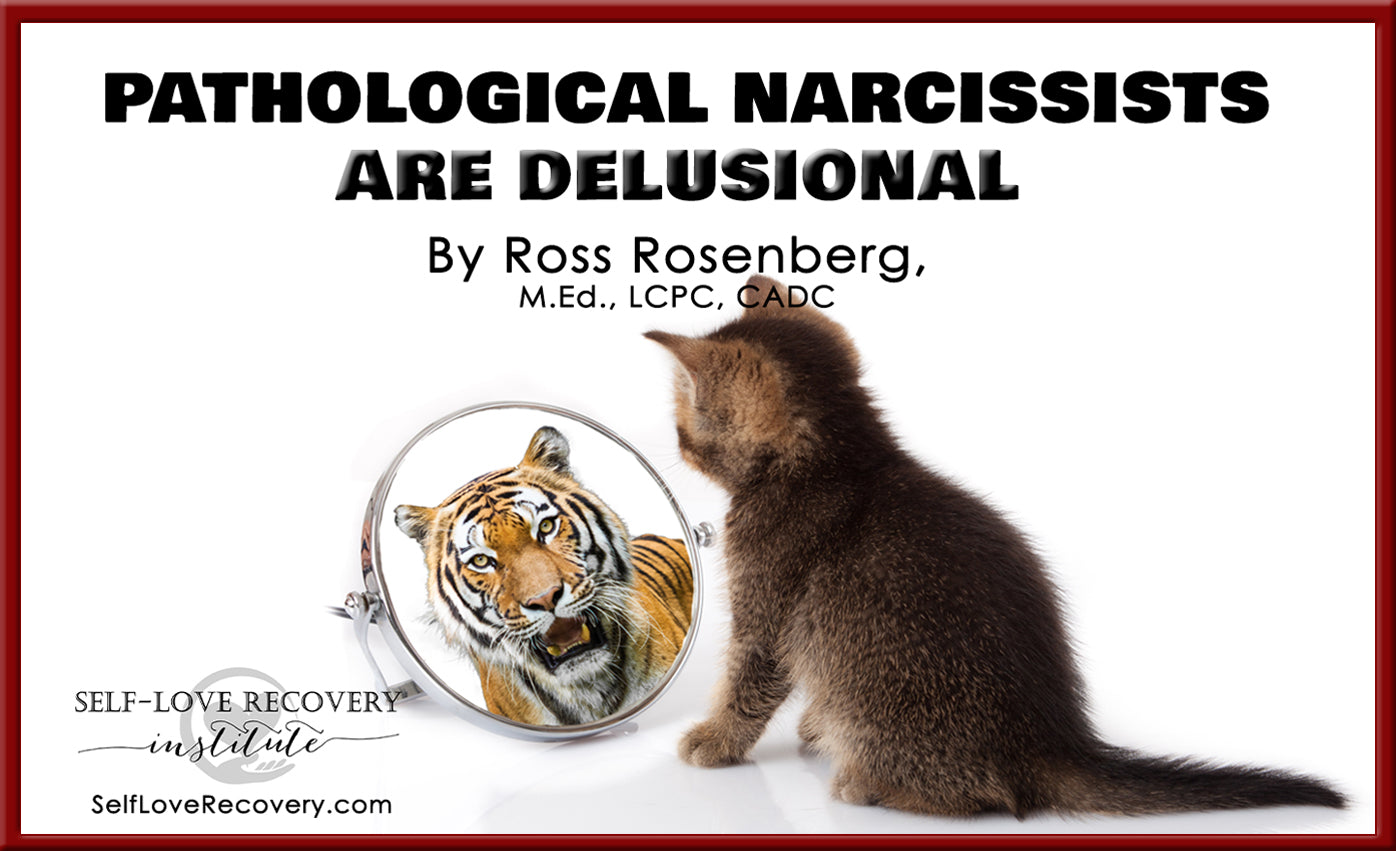
Written by Ross Rosenberg, M.Ed., LCPC, CADC
Self-Love Recovery Institute — President/CEO
Psychotherapist, Educator, Author, Expert Witness
These days, the term “delusion” or “delusional” is used well beyond its original clinical meaning. Like many of my other mental conceptualizations, I understand it according to levels of severity or gradations. In its most pronounced form, it represents a symptom of a debilitating mental illness. Its more informal version describes a person or action that is mildly upsetting or dysfunctional.
A delusion is a sincere belief not questioned or adamantly held onto despite evidence to the contrary. According to the Miriam Webster online dictionary, “delusion” is “a persistent false psychotic belief regarding the self or persons or objects outside the self that is maintained despite indisputable evidence to the contrary.” In addition, Dictionary.com defines “delusional” as:
- Maintaining fixed false beliefs even when confronted with facts, usually because of mental illness.
- Having false or unrealistic beliefs or opinions.
Delusional thoughts or belief patterns can be a primary symptom of a painful, difficult-to-treat, and extraordinarily challenging mental illness, such as schizophrenia. On the other hand, chronic or periodic delusionality is manifested by psychological, environmental, and developmental causes. The latter explanation for delusionality represents a person who consciously expends effort to deny their reality, or, on the other hand, is prone to unconscious or dissociative avoidance, personality disturbances, drug abuse, trauma, and other more reactive and often treatable explanations. The delusions of a pathological narcissist fit the second category.
Codependents can be prone to milder presentations of delusional thinking, as earlier discussed in The Human Magnet Syndrome book’s “codependency delusion” and “roller-coaster amnesia” sections. However, the primary distinction between codependent and narcissistic delusional thought and belief patterns is their consciousness and ability to self-correct. Narcissists are not incapable of such awareness and insight, while codependents are.
All people prone to delusions insist their subjective interpretations are accurate, despite evidence to the contrary. The impaired position is defended when proof or evidence contradicts the delusion(s). The person holding on to or insisting on the factual nature of their delusions often experiences personal, emotional, social, occupational, and various other possible consequences.
Delusional people are adamantly defiant, opposed, and resistant to evidence that could disprove their subjective but mistaken interpretations of a person, an event, or any aspect of themselves. Depending on the severity of the mental health condition or disorder, the delusional person reacts to someone insisting they are mistaken with annoyance, anger, and agitation. Some exact punishment on anyone who holds them accountable for their distorted thoughts and beliefs.
People with narcissistic personality disorder (NPD) demonstrate all the above, especially their inflated appraisal of their worth, contributions, and unrealistic expectations for respect and even admiration and praise. Their sense of entitlement, or beliefs of deserving or requiring special treatment, is another example of this narcissist’s delusional belief system. Grandiosity and entitlement are common traits of delusional pathological narcissists.
Grandiose narcissists are guided emotionally, personally, and socially by their unrealistic belief of superiority, which, in turn, supports their entitled beliefs for favors, special treatment, and respect. Besides their distorted thoughts and beliefs about being better, more unique, and more talented than others, they believe few others have anything in common with them. These pathological narcissists unrealistically think only other people with the same supposed positive attributes could understand them.
Delusional pathological narcissists often are involved in unstable and conflict-ridden relationships. Therefore, any person who attempts to disprove or hold them accountable for their delusional based grandiosity and entitlement is perceived as a threat or enemy requiring an overt, covert, or passive-aggressive, punitive response.
The only relationships delusional pathological narcissists can maintain are with people who believe in their unrealistic and inflated beliefs, choose not to challenge them, or fear the consequences of it.
Unfortunately, people suffering from codependency are most susceptible to such delusional and grandiose pathological narcissists. Pathological narcissists often project their delusional beliefs that they are the victim codependent, and the real codependent is responsible for the relationship’s problems.
The opposite matching of the delusional narcissist and semi-delusional codependent, as described in my Human Magnet Syndrome book, requires the weaker and more psychologically pliable partner to adopt a semi-delusional thought process. As a result, codependents fall victim to what I refer to as “codependency delusion.” Since a delusion is a belief not supported by reality, a codependent is also delusional when they sincerely believe they can control or mitigate the harm caused by their pathologically narcissistic loved one.
Some codependents survive the unavoidable narcissistic abuse by the “ignorance is bliss” philosophy. By purposely dissociating from the actual causes of their problems and feigning blindness, they uphold the delusional belief that what is not seen is simply not there. Furthermore, the prospect of being painfully alone fuels the codependent’s lifelong delusion that with time, patience, and sacrifice, the narcissist lover will willingly correct their errant ways, sincerely apologize for them, and voluntarily change them, thereby returning to the person responsible for their original soulmate bliss.


0 comments